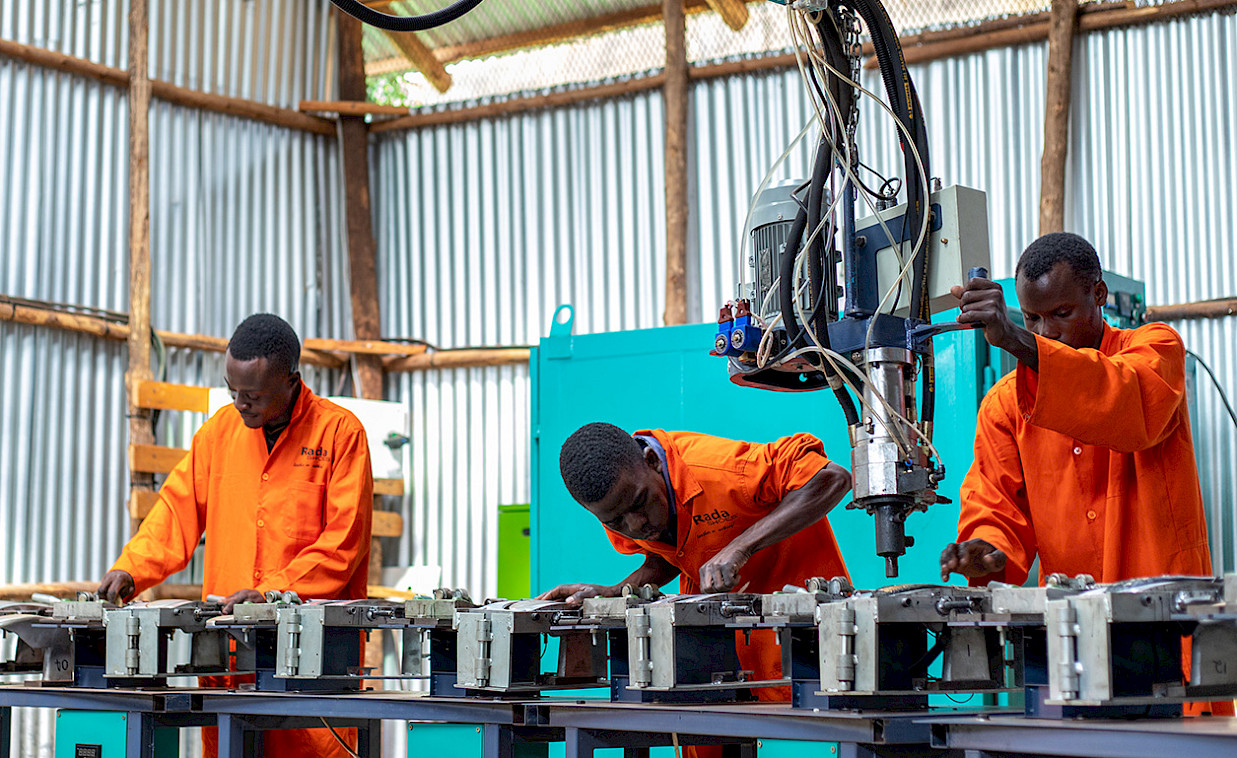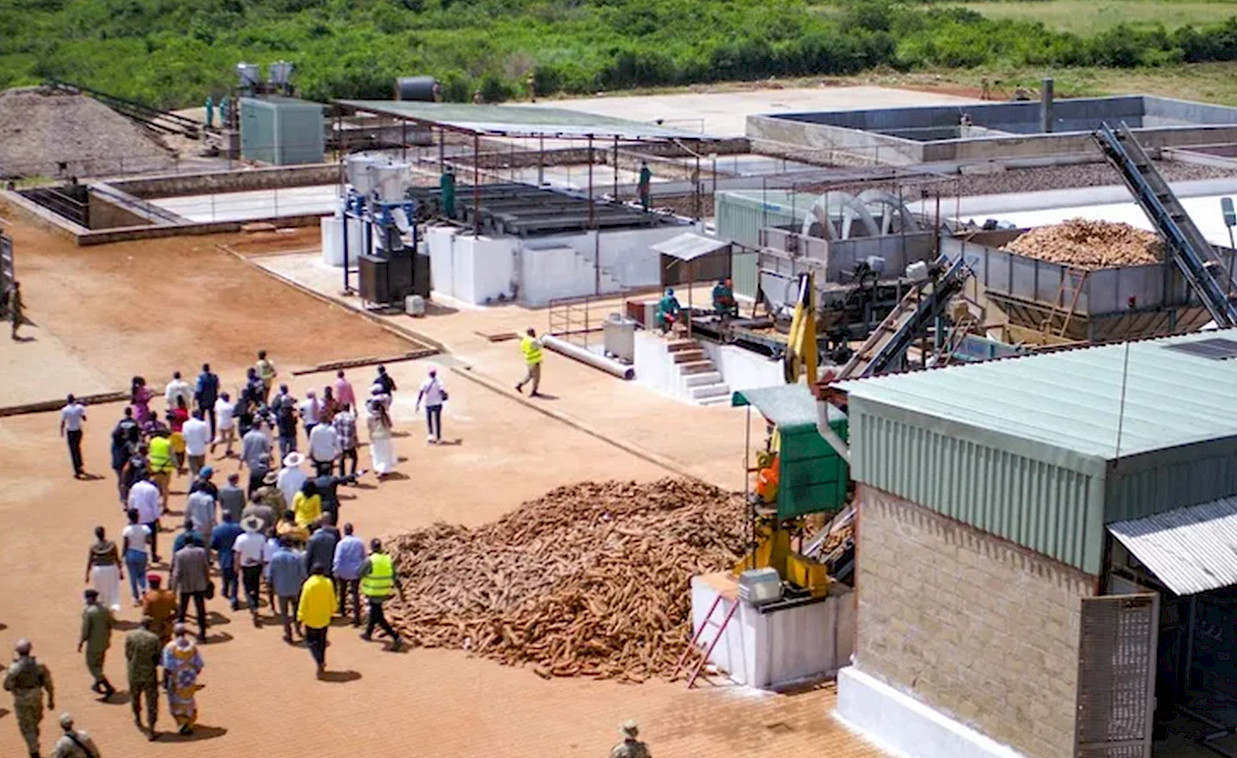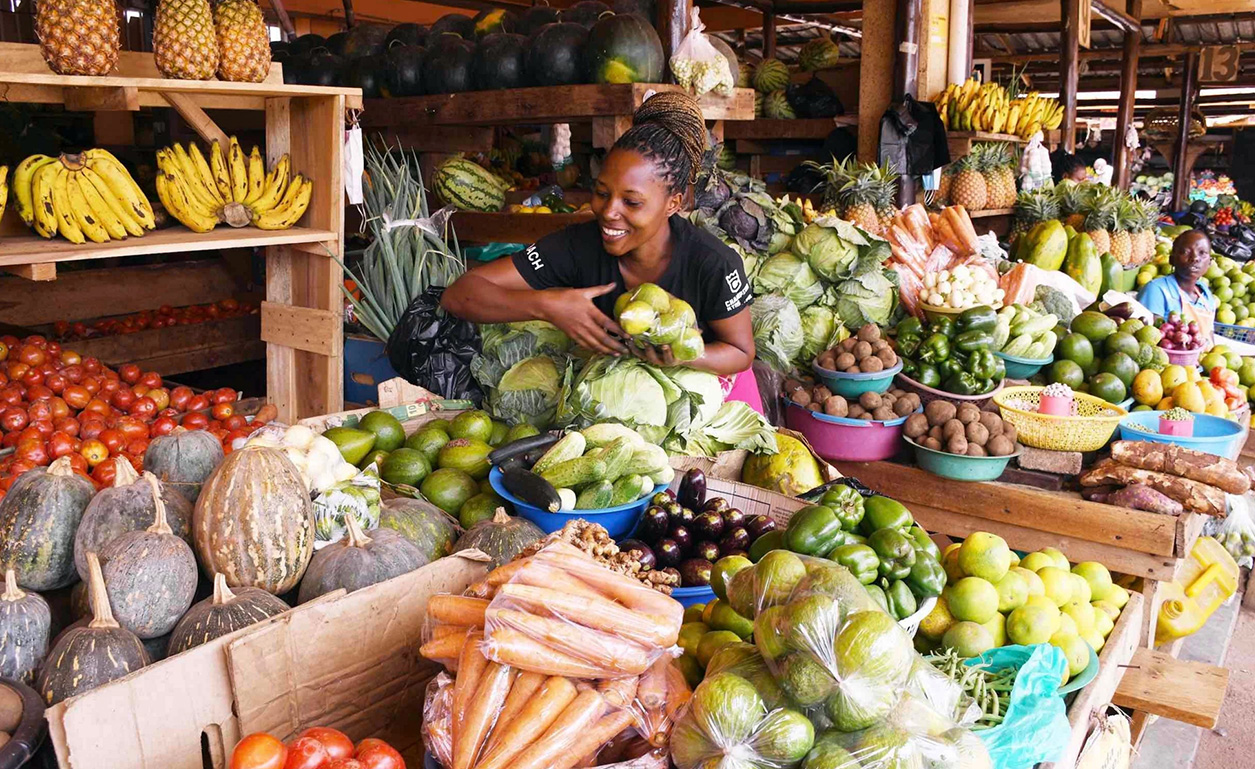What Uganda’s budget may mean for SMEs
Monday, July 28 2025 4:45 pm
By Paul Busharizi Follow on LinkedIn
Every morning before dawn, Musa fires up his charcoal stove at a soon-to-be busy corner of Kisaasi. By 7 a.m., he is serving rolex (eggs rolled in chapati) to his customers—boda boda riders, construction workers and office assistants. His monthly profits, after paying rent for his kiosk and feeding his young family in Kanyanya, barely stretch to the end of the month. Every so often, he is forced to bribe a KCCA enforcement officer to avoid eviction for “operating without a licence.”
“They tell us to register and pay taxes, but how can I pay when I don’t even know if I will sell enough to cover food for the week?” Musa asks, wiping sweat off his brow as the morning rush picks up.
Musa is not alone. Like Julie, who sells second-hand clothes in downtown Kampala’s crowded arcades, or Kenny, who ferries passengers through the city chaos on his motorbike, Musa operates at the edges of formal economic planning, rarely noticed in national policy, and even less in national budgets.
There is some light at the end of the tunnel, however. The FY2025/26 budget, Uganda’s largest yet at UGX 72.4 trillion (about $19 billion), has promised to make room for entrepreneurs like them. For the first time, the government has announced a three-year tax holiday for startups—a move aimed at encouraging formalisation, innovation, and small business growth.
A Budget Five Times the Economy of 1986
To appreciate the scale, Uganda’s budget this year is nearly five times the size of the entire economy in 1986, when the NRM government came to power. Back then, GDP stood at just $4 billion. Today, the ambition embedded in the national budget reflects decades of macroeconomic stability and infrastructure rebuilding, but also the sheer pressure to deliver opportunities to a restless and youthful population.
The budget allocates trillions to infrastructure, debt servicing, and community development initiatives like the Parish Development Model (PDM) and Emyooga. For entrepreneurs like Musa and Julie, these funds may seem distant. But woven into these grand plans are threads of real actionable opportunity.

Tax Holiday: Promise or Public Relations?
According to Finance Minister, Matia Kasaija, the aim of the three-year income tax holiday for new startups is to spur innovation and encourage small businesses to transition from informal to formal status.
Kenny, who has been riding his boda for six years, is cautiously optimistic. “The tax holiday sounds good,” he says. “But what if I don’t make enough to even pay myself? What’s the point of a tax holiday if you have got no profit to show?”
Indeed, observers warn that the policy, while well-intentioned, may offer little practical benefit to many micro-businesses. For most startups operating at subsistence levels, tax holidays will only matter once profitability is achieved—a milestone they may or may not reach in their first three years. Even they don’t know.
Julie, who has been running her stall in Owino for nearly a decade, puts it bluntly: “If they want us to register, give us stock money or make the stalls cheaper—not talk about income tax exemptions when we are not even eating a profit.”
Analysts agree that the tax holiday may be playing to the gallery unless paired with credit access, simplified registration, and local government engagement.
Financing the Hustle: PDM and Emyooga
A more tangible source of relief for small businesses may lie in the continued rollout of PDM and Emyooga—programmes meant to provide low-cost capital to household enterprises through community-based SACCOs.
Julie recalls attending a PDM awareness meeting in her parish. “They said we could get up to a million shillings,” she says, “but when we went to the SACCO, they said the money hadn’t come. Others said you had to know someone to be considered.”
This inconsistency in access remains a challenge. But in areas where SACCOs are functional and well-governed, some beneficiaries report increased earnings and improved resilience. Musa, for example, says his neighbour used a PDM loan to buy a second-hand freezer and now supplies juice to two schools.
“There is hope,” he says, “But they must make it easier for us to apply, not only for those who have connections.”
Observers believe digitising SACCOs and embedding financial literacy training can improve transparency and uptake, especially for traders, food vendors, and boda riders.

Infrastructure and Market Access
This year’s budget devotes UGX 4.5 trillion to roads and UGX 2.3 trillion to energy, a continuation of Uganda’s long-term infrastructure investment. While this may seem abstract to someone like Kenny, the impact is tangible.
“Whenever they fix the road, I carry more passengers,” Kenny says. “If they tarmac more roads in the area, my fuel lasts longer and I make more rounds.”
Better infrastructure, including market access roads, translates directly into lower costs, expanded reach, and new business. For Musa, improved power supply could mean shifting from charcoal to an electric stove, reducing both operational costs and health risks.
Startups in logistics, mobile cold chains, or even shared processing facilities stand to benefit from these investments—particularly if they operate in secondary towns where infrastructure upgrades are unfolding.
Digitalisation and GovTech: New Startup Frontiers
The Uganda Revenue Authority’s expansion of EFRIS and public sector digitisation is opening space for startups in mobile accounting, digital compliance, and public service automation.
Julie, who recently tried using a mobile app to track her sales, says she still prefers paper. “The phone is good, but sometimes data finishes or the app crashes,” she says. “But if they train us more, maybe we can manage it.”
Startups offering low-bandwidth, USSD-based tools, or embedded services through WhatsApp, could play a role in easing traders into the formal economy. There is also growing demand in SACCOs, parish offices, and health centres for simple, affordable software to manage books, disbursements, and procurement.
If the government’s Buy Uganda Build Uganda (BUBU) policy is enforced more rigorously, tech startups could also win contracts to digitise local councils, schools, or even boda rider cooperatives.
Procurement and the BUBU Opportunity
Under BUBU policy, registered local firms, including startups, can compete for government contracts in goods and services. For small enterprises like Julie’s, this could mean supplying school uniforms or basic household items. For others, it might involve providing printing, ICT, or training services.
“The day I get a school contract to supply jumpers is the day I leave Owino,” Julie laughs. “But I don’t know how to start—how do you even get those tenders?”
The answer, according to analysts, lies in simplifying procurement processes, reducing delays in payments, and publishing tenders in accessible formats—perhaps via SMS or local noticeboards.

Agro-Industrialisation and Rural Innovation
The budget’s continued emphasis on agro-industrialisation opens space for startups in value addition, processing, and rural supply chains. Musa sees potential here: “My wife grows greens, but we don’t earn much. If we had a place to pack and sell them in town, we could do better.”
Startups that offer aggregation, packaging, or affordable machinery for juicing, drying, or storage could thrive in this environment, especially if tied to regional industrial parks or extension service networks.
Climate, Green Solutions, and the Next Wave
The budget’s growing focus on water for production, irrigation, and sustainable agriculture is also unlocking space for climate-smart startups—from solar-powered irrigation to carbon farming platforms.
Kenny, who once tried a battery-powered boda, believes the future is electric. “If I had a charging point at the stage and didn’t have to buy fuel daily, life would be different,” he says.
Clean energy startups could find opportunity in building rural charging networks, battery swaps, or even community power banks.
Health, Education, and Youth Engagement
The allocations to education (UGX 4.2 trillion) and health (UGX 2.8 trillion) open demand for edtech and health tech startups. Musa dreams of sending his daughter to a technical school. “If they bring short courses to the parish, I’ll register her immediately,” he says.
Digital learning platforms, micro-credentialing apps, and school management systems are already being piloted in some districts. With government partnerships, they could scale.
Constraints Remain
Despite all these openings, real obstacles persist. Uganda’s debt servicing bill—UGX 19.8 trillion—eats up a quarter of the budget. Domestic arrears have ballooned to UGX 14 trillion, strangling private sector liquidity. Implementation bottlenecks persist across ministries and districts.
While the three-year startup tax holiday is a welcome signal, it may not be enough for businesses that do not turn a profit in their early years.
“We’re still struggling to stand,” Musa says. “What we need is not just tax breaks, but capital, customers, and protection from harassment.”
For Musa, Julie, and Kenny, the national budget has long been distant noise behind the daily grind. But this year’s plan—if delivered with focus—offers more than aspiration. The combination of targeted investment, grassroots financing, and early policy shifts like the tax holiday could plant seeds for real inclusion.







